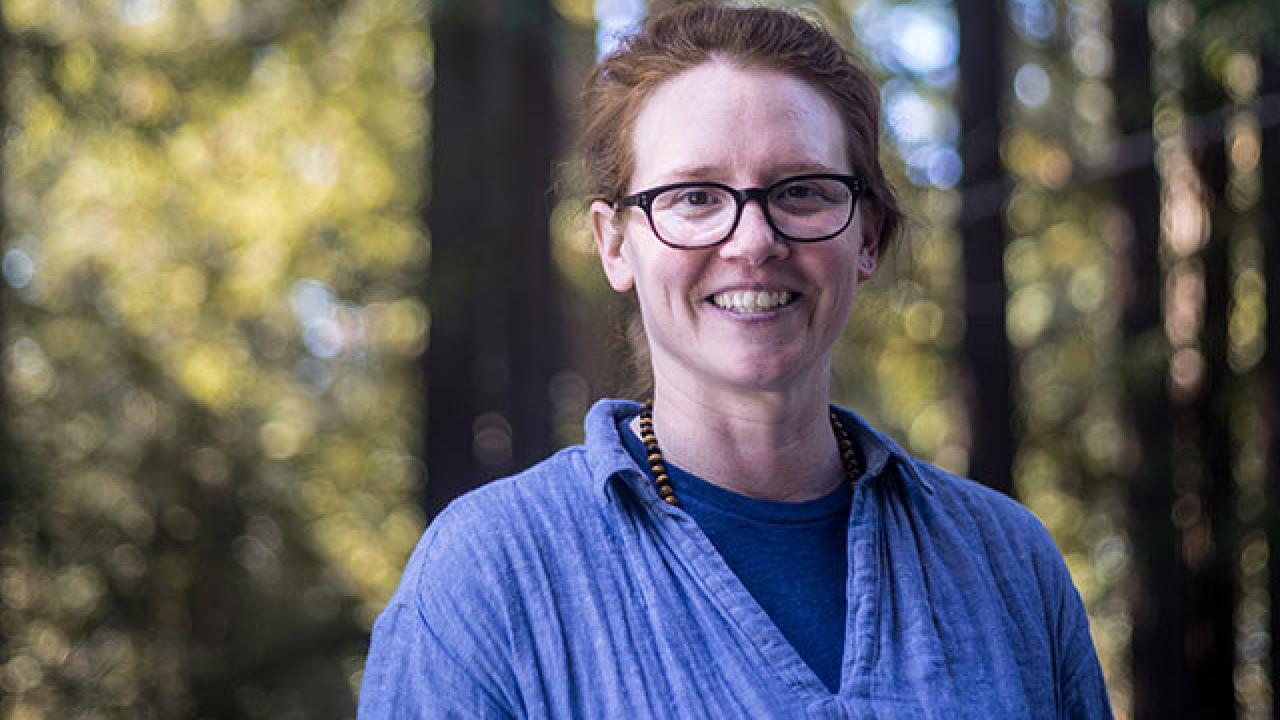
Heather Shearer
How do you define faculty leadership?
The most effective leaders are those who are able to create positive conditions for learning and work. This could mean that the leader champions a vision of the future that allows a program or department to flourish. But it could also mean that leader directs and redirects information to the appropriate people at the appropriate time to help individuals and groups realize their goals. Leaders are conduits. Their leadership should be based on the needs of the institution, as well as the needs of the various groups within the institution for whom they are responsible.
Can you share an example of when you've been able to influence positive change as an academic leader?
The Writing Program at UCSC, in conjunction with the ten campus colleges, has been working to revise the undergraduate writing curriculum. The changes we are proposing will benefit students, faculty, and staff. This is a massive project, requiring the work of many hands over several years' time. I am proud to have been part of this effort.
How could the University benefit from preparing more faculty for future leadership positions?
Few faculty receive formal training in leadership strategies or in-depth mentorship ahead of taking on a leadership role. Yet, faculty leadership is central to keeping the academic programs running smoothly--for managing, in conjunction with staff, the "back of the house" work that results in the classroom experiences we provide to our students and the labor conditions we create for teachers, researchers, and others. This important labor requires a skill set of its own; people are not born with the knowledge to do this work effectively, they learn to do it. The university saves resources when it provides training to the people it appoints to leadership positions.
Tell us about your experience with leadership development programs, or if you have not participated in any, what you would hope to gain from doing so.
Over the years, I have participated in several leadership development programs. One of the best was offered through the National Education Association. Their training focused on the theory and practice of organizing--a useful approach that I have been able to apply to all types of leadership work. I also participated in UCSC's Leadership Academy. This program was fundamental in helping me to prepare for my work as a program chair. By participating in the academy, I was given the time and space that I needed to think about the needs of my own program with respect to the campus at large. I was also given the opportunity to extend my professional network, which is key to accomplishing programmatic goals.
How does strong leadership from Faculty impact the University of California?
UCSC in particular values shared governance. Our Academic Senate is one of the most powerful and active in the system. This shared governance structure benefits faculty and students, but it also confers a weight responsibility on faculty: for this system to work, each of us must participate in it. One a broader scale, it helps to realize that without faculty and students, the university would cease to exist. When all is said and done, the university relies on the teachers in classrooms who do good work with students and the faculty in various settings conducting research that shapes and reshapes our understanding of the world. We bear the primary responsibility for the health of the university. Assuming leadership positions empowers us to fight on behalf of teaching and learning.
What would you say to Faculty hard pressed to find time to participate in leadership workshops or other programming?
At some point, you will be called on to shoulder leadership work, whether that be in service to the program/department, the campus, or the system. Participating in training--especially during the term of your leadership--can provide you with the support you need to accomplish your work more easily, which will positively impact everyone around you. In addition, participating in workshops and other leadership programming can be a form of self-care. Those in attendance at workshops share the same concerns and challenges that you do, and talking with others will allow you to realize that you're not alone in the challenges you face--and that solutions (albeit sometimes imperfect solutions) do exist. Leadership is a collaborative endeavor; making connections in informal settings such as those provided at workshops and other events should be viewed as part of leadership work itself.
